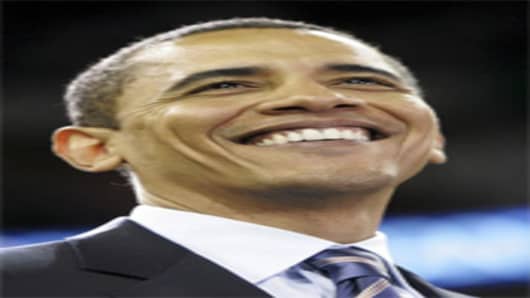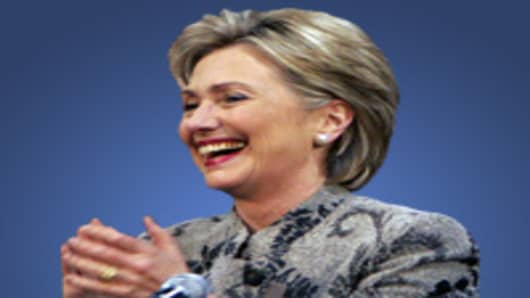For much of the debate, the two candidates agreed over and over again: on their support for immigration reform, economic aid to struggling Americans and democracy in Cuba.
Each also tried to appeal to a major part of the Texas electorate, Hispanics, by emphasizing their support for immigration reform and their involvement in past legislation to help immigrants and their family members.
Mrs. Clinton has come to count on Hispanic voters, who helped her win nomination contests in Arizona, California, Nevada, and New Mexico, but Mr. Obama is hoping to make in-roads with populist economics arguments and by emphasizing the needs of immigrants.
Mrs. Clinton defended her support for building a physical barrier along the border with Mexico, noting twice that Mr. Obama voted for it as well, but at the same time she called for a review of the project, which, she said, had become “absurd” under the Bush administration.
“As with so much, the Bush administration has gone off the deep end, and they are unfortunately coming up with a plan that is counterproductive,” she said.
Mr. Obama almost entirely echoed her remarks, and also drew applause with his criticism of the current president. “The Bush administration is not good at listening; it’s not something they do well,” he said.
The candidates also agreed that no aspect of a bilingual culture had been bad for America.
“I think it’s important for a lot of Americans to do what I have never been able to do: learn another language,” Mrs. Clinton said. She noted that she opposed making English the official national language, but also said it should remain a “common unifying” language for all Americans.
Asked about Cuba, Mr. Obama said he was willing to meet with Raúl Castro “without preconditions,” but he also insisted that the talks would have to deal with human rights, releasing political prisoners and other issues.
Mrs. Clinton responded that the United States should have diplomatic negotiations “with anyone” but noted that she and Mr. Obama had differed on when and whether the president should offer a meeting with foreign leaders without preconditions.
“I would not meet with him until there was evidence that change is happening,” she said.
The candidates drew frequent applause as they made direct appeals to people in “Ohio and Texas,” a phrase they both used a few times.
Clinton advisers have said Mrs. Clinton must win the Texas and Ohio primaries by at least 10 percentage points if she has any hope of catching up with Mr. Obama in the delegate count, particularly because he has shown momentum recently at picking up support from elected officials who count as superdelegates.
The two candidates are set to meet for a final debate on Tuesday in Cleveland.




